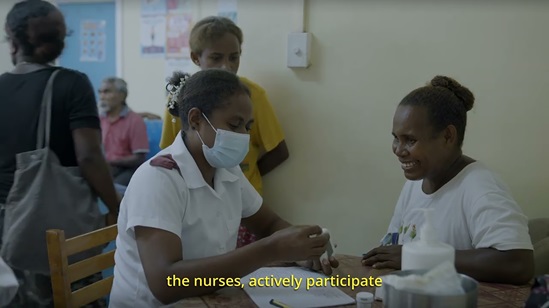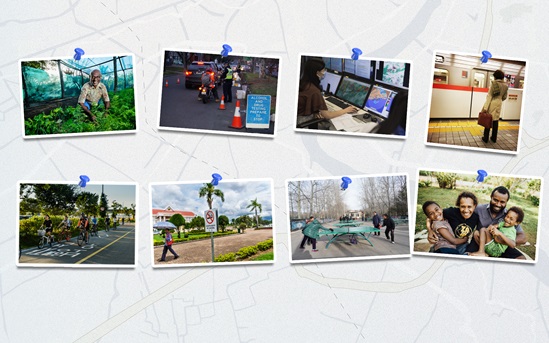Noncommunicable diseases (NCDs), principally cardiovascular diseases, cancer, diabetes and chronic respiratory diseases, are the leading causes of death and disability in the Western Pacific Region. They are responsible for 80% of all deaths and 50% of premature deaths in low- and middle-income countries. NCD-related morbidity and mortality will continue to rise if urgent measures are not taken.
The WHO Western Pacific Region NCD and health promotion programme supports Member States to implement global and regional actions plans to prevent and control NCDs by:- Raising the priority accorded to NCDs through international cooperation and advocacy;
- Strengthening national capacity to accelerate country responses;
- Reducing modifiable risk factors through the creation of health-promoting environments;
- Strengthening health systems to address prevention and control of NCDs through people-centred primary health care and universal health coverage (UHC);
- Promoting national capacity for high-quality research and development; and
- Monitoring trends, determinants and progress to achieve global, regional and national targets through evidence-based interventions.
Coordinator, Management of Noncommunicable Diseases
Contact us
Our work
News
All →Latest publications
All →
The STEPS survey is a simple, standardized method for collecting, analysing and disseminating data on key noncommunicable disease (NCD) risk factors in...

Weaving health for families, communities and societies in the Western Pacific Region (2025-2029): working...
This document sets out thematic priorities for WHO's work in the Western Pacific Region for the next five years to improve health and well-being, and save...

The Pacific Islands–WHO Multi-country Cooperation Strategy 2024–2029, or MCCS, developed by the World Health Organization (WHO) through a...

Drinking safe water is the best way for children to stay healthy and quench thirst. Water is the best choice for children to restore the fluids their...
Multimedia
All →Related health topics








